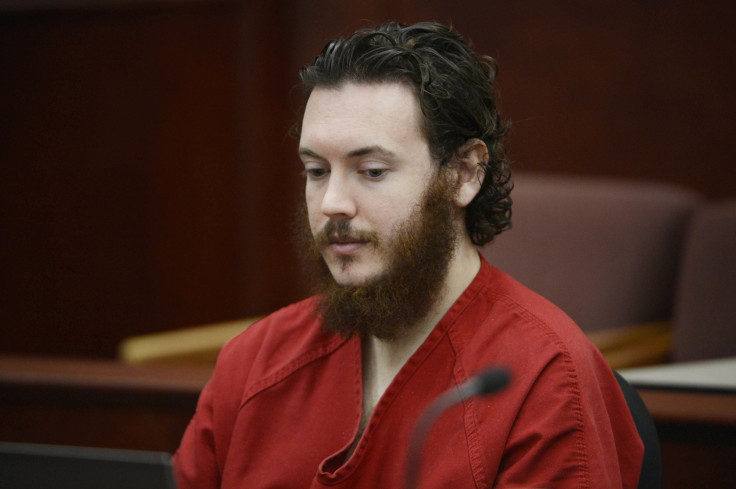Aurora Theater Gunman James Holmes Says He Called Crisis Line Moments Before Shooting

Jurors in the trial of James Holmes, who went on a shooting spree that killed 12 people and injured 70 at the Aurora movie theater in Denver in July 2012, gained insight into the shooter’s mind when they watched a recording of his conversation with a psychiatrist on Tuesday, the Associated Press reported.
Holmes was evaluated by psychiatrist William Reid last year after he pleaded not guilty by reason of insanity. Jurors are being shown almost 22 hours of footage. In the video, Holmes reportedly acknowledged the comparisons that had been made between himself and the fictional movie villain, the Joker.
"The dyed hair usually makes them think of the Joker," Holmes told Reid, according to People magazine. "Along with (the shooting) being at the Batman movie."
Holmes said the comparison made him feel like a “supervillain,” but added: "It's not so great when you're stuck in a cell."
He also revealed that he waited outside the movie theater for a few moments and placed a call to a mental health hotline, thinking that someone would talk him out of it or that authorities would stop him, he reportedly told Reid.
He had admitted earlier that he had paranoid delusions of being monitored by FBI agents, and indeed hoped they would stop him from carrying out the shooting.
But the call disconnected without being answered, and Holmes tossed a tear gas canister into the theater and opened fire.
"At that point, I'm on autopilot," he reportedly said.
Reid testified on Monday that Holmes had chosen a midnight screening of the movie, “The Dark Knight Rises,” because he believed there would be fewer children at the show.
In the videotaped conversation, Holmes had told Reid that he believed he gained one “value unit” for each person he killed. "I was worth 12 more people than I was before," he reportedly said.
Reid reportedly said on Monday: "Whatever regret he had, he makes it clear that getting the points and killing the people was worth it."
Holmes’ defense attorneys are arguing that the shooter’s schizophrenia had distorted his perception of the world, and that he should be sent to a mental hospital, and not a prison.
However, prosecutors refute the claim and seek death penalty for Holmes. They point to the fact that Reid said that Holmes, while seriously mentally ill, was not clinically insane at the time of the shooting.
Insanity defense in Colorado requires a defendant to be unable to tell right from wrong or be incapable of properly forming the intent to commit a crime due to mental illness.
Holmes said he was on the anti-anxiety medication Sertraline, prescribed by a psychiatrist. He reportedly said he might not have carried out the attacks if he hadn’t been on the prescription.
University of Colorado psychiatrist Lynn Fenton had reportedly been informed of Holmes’ violent urges. Holmes said that he repeatedly asked her if she was going to have him detained under a three-day psychiatric hold. "I kind of regret that she didn't lock me up so everything could have been avoided," he told Reid, according to CBS News. He added, however, that he made sure to avoid telling her about his plans to carry out the shooting.
At least one lawsuit has been filed against Fenton, alleging that she should have forced Holmes to be detained, although it has been put on hold pending the trial’s conclusion.
© Copyright IBTimes 2025. All rights reserved.





















